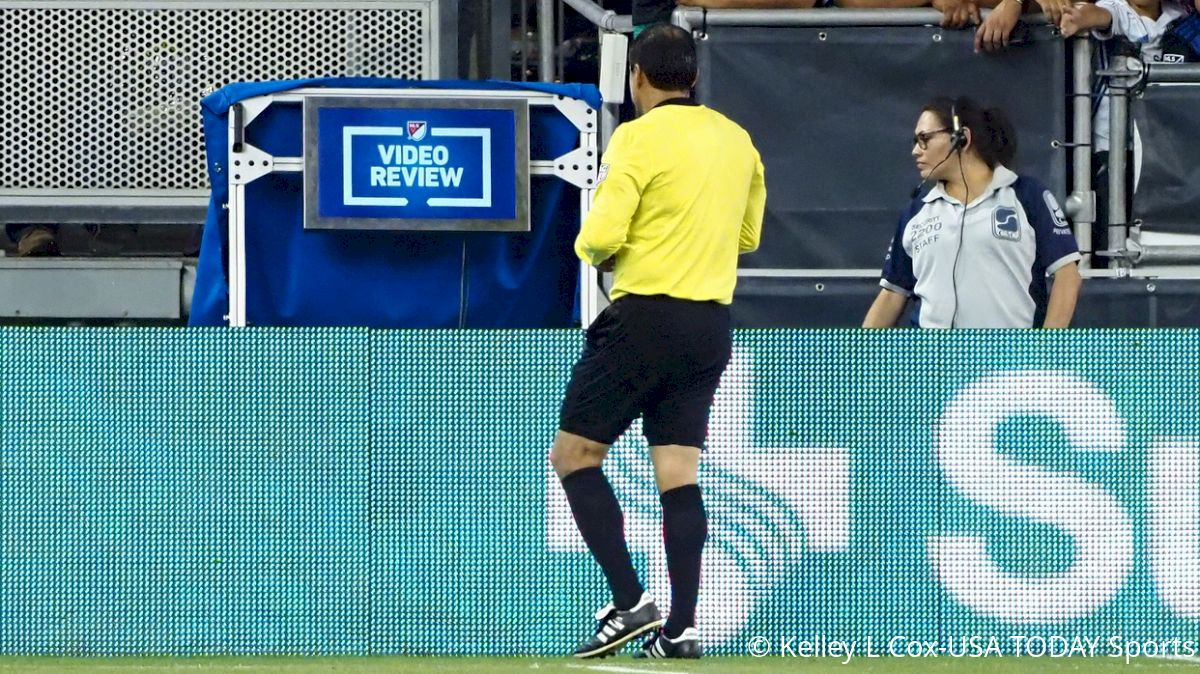Video Review System In Major League Soccer Still Causing Occasional Issues
Video Review System In Major League Soccer Still Causing Occasional Issues
Video reviews usually turn out the right call. But, as shown recently, there are still some issues with the system in MLS.

Unsurprisingly, the technology that was brought into the game of soccer to help the referees make calls has continued to cause headaches for players and fans alike. Before the advent of video reviews, incidents during a game had to be viewed through one set of four eyes to be called by the referee. With the speed of the game, referees needed help, and video reviews have helped referees get calls on the field correct.
For the most part, that is.
As we've seen in MLS recently, there are still some issues with video reviews and the outcomes from those reviews. There are still incorrect calls being made, plays that have one outcome when they should have another. And that's a source of plenty of angst for managers throughout the league, who all seemed to have been wronged at one time or another by the system.
For the most recent incident, look no further than last night's game between Minnesota United and Sporting Kansas City. Early in the game, Botond Baráth got on the end of a Johnny Russell cross, and put SKC up on the road. There's just one problem with that goal, as clearly illustrated by the video shot by Sporting from the field level.
? Field-level views from Barath's crowd silencer...#MINvSKC 0-1 // #ForGloryForCity pic.twitter.com/FxPlri0759
— Sporting KC (@SportingKC) September 26, 2019
Yes, Baráth scored that goal with his hand. That angle might have been more conclusive than any other that was available to the video assistant, but this was not a play that was flagged to be reviewed by referee Ismail Elfath. Which is a problem! Because that goal was scored via the right hand of Baráth, and not his right leg.
With the amount of available technology, the right call should have been attainable. Instead, the goal nearly changed the entire outcome of the game; it was not until the 90th minute that the Loons scored the game-winning goal, which secured their first-ever playoff appearance in MLS.
A couple of weeks ago, D.C. United went to Portland and ran out 1-0 winners over the Timbers. It was a tight affair and would have been so even if United had been awarded a second goal in the first half of the game. What would have gone down as a Steve Clark own goal was instead cleared off the line by Eryk Williamson, at least according to the refereeing team that day.
Here's a still image from the goalpost camera on ESPN from that play.
VAR?! #DCU #RCTID #MLS pic.twitter.com/qD7QPgmojT
— Taylor Twellman (@TaylorTwellman) September 15, 2019
There's some pretty clear evidence that the ball has crossed the line in this instance. It's a tough call, because the play is moving so fast, and the other goalpost camera doesn't show the ball clearing the line. But to hear from PRO after the fact, that was down to the clearance happening between a space of 1/60th of a second, hence the frame not being available.
But even PRO said, in reviewing plays from that week in MLS, that the goal should have awarded to United. Again, the call did not affect the outcome of the game, but it could have easily done so.
In fact, the league shouldn't be putting the onus of this type of call one the referees themselves. Goal-line technology exists and has been used by FIFA in World Cups since 2014. The technology is not cheap by any stretch of the imagination, and it's rare that it would be needed as well. But when margins are so thin, because goals are just so rare in soccer, then you have to get calls right. Which means MLS should be equipping all their stadiums with the same systems used by FIFA and in the Premier League.
There's never going to be a perfect solution to refereeing a soccer game. As it works now, the video review system is geared towards helping referees make the right calls on the biggest plays of games, and not every little minute detail. But as we've seen in MLS, there is still some way to go to get all the big calls right, and it might be time for MLS to invest even more to help the referees ensure that calls are being made correctly.